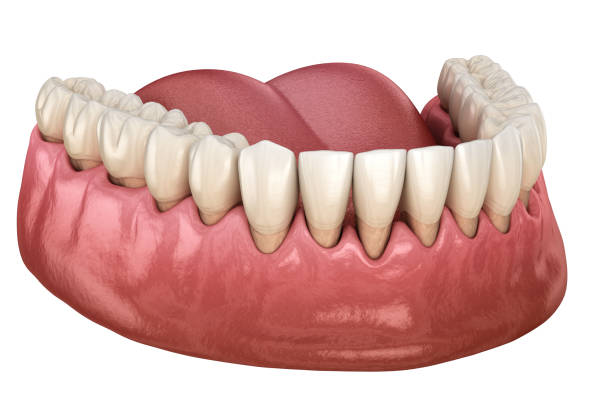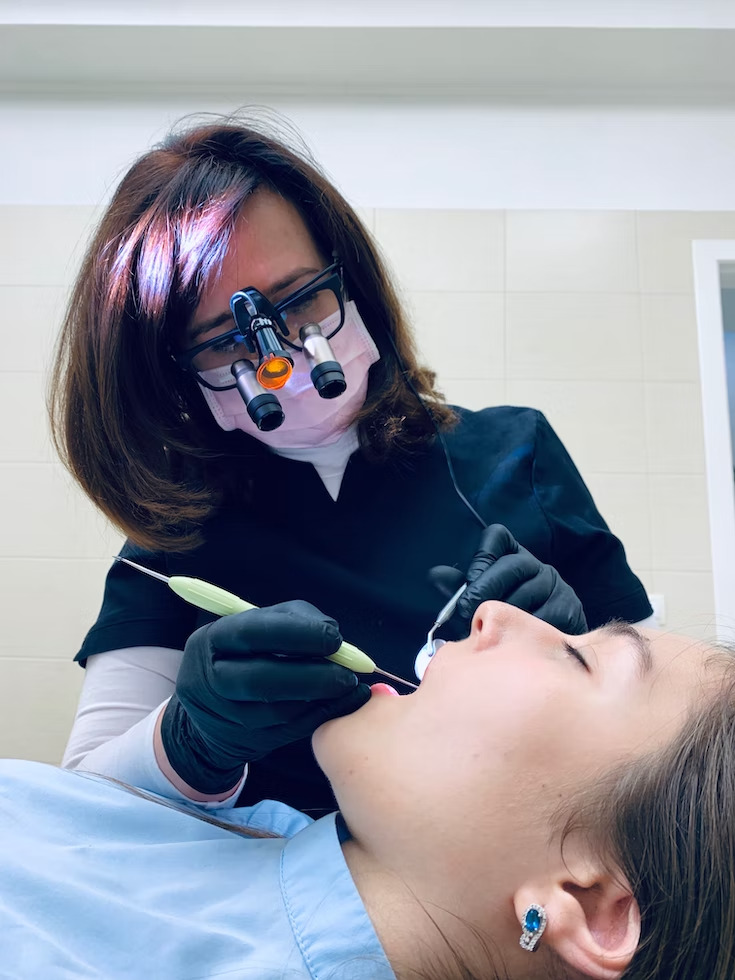Appointment


Are you experiencing pain, inflammation, or other issues with your teeth or gums? If so, you may be suffering from a condition known as periodontal disease. Fortunately, there is an effective treatment known as periodontal scaling and root planing.
This comprehensive guide will explain in detail what periodontal scaling and root planing are, why they're necessary, and how they can help improve oral health. You’ll learn what to expect from the procedure, from the pre-treatment assessment to the follow-up care.
With this information, you can make an informed decision about your treatment plan. So, let’s dive in and learn more about periodontal scaling and root planing.

Periodontal disease is a bacterial infection of the tissues surrounding the teeth. Specifically, it’s an inflammation of the gums, which may lead to bone loss and tooth loss. While the infection can occur in anyone, it is most common in people who avoid oral hygiene, such as those addicted to drugs or alcohol.
If left untreated, the infection can spread to other areas of the body, so it’s essential to seek treatment as soon as possible. Periodontal disease is treated with a procedure called periodontal scaling and root planing.
During this procedure, the dentist cleans around the teeth, removing bacteria and other harmful substances that may have built up. They will also clean below the gum line, removing any plaque or tartar that may have accumulated.
Scaling and root planing are typically performed once per year, depending on the patient’s needs.
Periodontal scaling and root planing is a procedure that is used to clean below the gum line and between the teeth. It is an integral part of the treatment regimen for periodontal disease.
During the procedure, the dentist will use tools to remove plaque and other substances that may have built up below the gum line. These substances may include bacteria and tartar, which can cause gum disease.
The dentist uses tools to scrape below the gum line and between the teeth during the scaling and root planing procedure. This scraping removes plaque, bacteria, and mineral deposits that may have collected below the gum line.
Scaling and root planing aim to reduce inflammation, remove plaque and tartar, and promote healthy gums.

The dentist may use many different scaling techniques during scaling and root planing. The amount of scaling will depend on the severity of the patient’s gum disease.
If scaling is necessary, the dentist may use a scaler, a curette, or both. A curette scaler is a small, scoop-shaped tool that is used to remove hardened substances, such as tartar, from the gum line.
The dentist may also use a diamond-coated scaler or a rotary instrument to remove the tartar from the gum line.
The main benefit of scaling and root planing is that they can improve the health of the gums and teeth. However, it is essential to note that scaling and root planing do not treat any existing infections or diseases.
It only removes substances that may cause gum disease and tooth decay. If scaling and root planing are performed regularly, they can help prevent tooth loss from gum disease.
While scaling and root planing can help prevent gum disease and tooth decay, they should not replace regular dental cleanings.
After the scaling and root planing procedure, the dentist will use an antiseptic mouthwash to clean the area. The antiseptic mouthwash will help prevent infection by killing any bacteria that may have been left behind.
In addition, the dentist will likely recommend that you rinse your mouth with an antiseptic solution, such as peroxide or saline, to remove any remaining bacteria or particles from your mouth.
After scaling and root planing, you should also pay close attention to your daily oral hygiene routine. Practice brushing your teeth twice daily, flossing once daily, and use an antibacterial mouthwash once daily.
You should speak with your dentist if you have questions or concerns about oral hygiene after scaling and root planing.
Periodontal scaling and root planing are low-risk procedures. However, as with any medical procedure, some risks are associated with scaling and root planing.
Some of these risks include bleeding, infection, damage to the tooth, or damage to the gums.
Additionally, if the scaling and root planing procedure causes damage to the gums, the dentist will likely apply either pressure or a bandage to help stop the bleeding.
After scaling and root planing are completed, you will have a better chance of maintaining good oral health. However, you must still follow a daily oral hygiene routine, even after the procedure.
You should brush your teeth twice daily, floss once daily, and use an antibacterial mouthwash once daily. It would be best to visit your dentist once yearly for a regular cleaning and dental exam. There are many benefits associated with periodontal scaling and root planing.
It can help prevent tooth loss, improve oral health, and reduce the risk of other health issues, such as heart disease. If you are experiencing gum disease or tooth decay, periodontal scaling and root planing can help.
This comprehensive guide lets you learn more about this procedure and decide if it’s right for you.
Al Care Dental is a friendly, joy-filled general and cosmetic dental practice in Leduc, Alberta. We provide a full range of services and offer evening and weekend hours.
When you meet with the dentist for the first time, it is always good to introduce yourself and tell them why you are there. Be honest about any concerns that you have about your teeth. This will help the dentist work on keeping your teeth healthy and strong.
If you are nervous about visiting a dentist, do not worry. When you are at Al Care Dental Clinic, we take care of your needs so that you can sit back and enjoy your treats.
We look forward to giving you the best smile in town, so book an appointment with us now! For more information about our office, click here.
If you have any questions, do not hesitate to contact us at (780) 986-9857 or email us at [email protected].
We’re glad you chose our practice! Please take some time to learn about how to prepare for your first appointment.
Find Out more